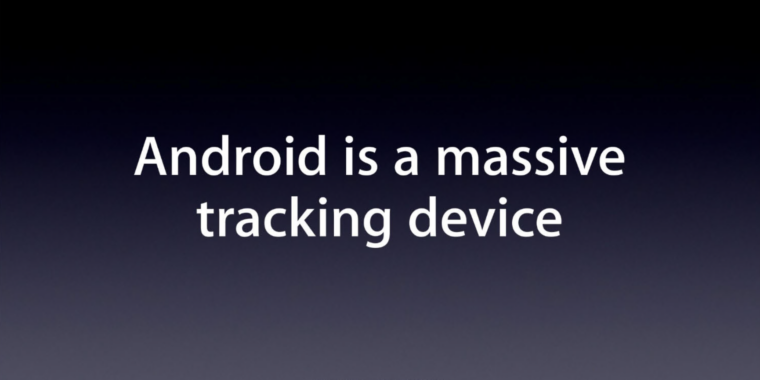- cross-posted to:
- technology@lemmy.world
- cross-posted to:
- technology@lemmy.world
deleted by creator
At least they didn’t slam them
“Apple HUMILIATES Android in latest presentation”
Hilariously non self aware.
In 2013 they to some extent still targeted geeks, developers, Linux users.
Also it’s the elitist part of their image, it was somewhat culture-oriented, and that culture involved sci-fi, cyberpunk etc.
And the “anti-utopian” part is classic for Apple advertising.
We so quickly forget that at some point both Apple and Google weren’t perceived as hostile to computer geeks or various high causes and actually as geeky themselves. People would simp for them, not very stupid or ignorant people.
It’s amazing how things come clear with time.
I was one of those people. Huge Google sympathizer. To weigh in on this, I think the biggest reason was that Google was doing amazing things with their power. Google Docs was revolutionary, and it felt like a huge breath of fresh air to see a free online alternative to Microsoft Office. Same with many other products they had been making. It wasn’t that they were geeky - it was that they were changing things a LOT and bringing a ton of value.
Now tech giants don’t seem to do anything interesting anymore. The biggest feature of the last iPhone was it was made from titanium, and the biggest Android 14 feature was AI wallpapers. This is coming from companies who hire the best engineers in the world.
I’ve lost all trust with them. I want to see the world keep improving and changing for the better, but anything related to them is not going to do it.
I live in Russia and I remember when most people used Rambler as a search engine (I’m not sure if my memory deceives me, but it maybe even was the default in IE after install), and also Yandex.
I was really enthusiastic when Google came to the Russian-speaking Web as a search engine, and also when they rolled out a browser of their own (I was still using Opera, but it was very nice). Google Earth I just loved, simply used it to look at various parts of the world for the process itself, ha-ha.
There was something about the general spirit of Google, with them supporting XMPP and RSS, and with services like Google Code, and events like GSoC.
I think that this push at looking good and geeky from those years was connected to Sun Microsystems still being alive or just recently dead, and thus having to compete with Sun’s image of a really humanitarian company while also really important for the industry.
No Sun - no need, Apple always was elitist and their “geeky” part was always perceived as fake, Microsoft was always perceived as evil, and in general nobody had the bar as high as Sun’s. So they didn’t have to try that hard to seem the good guys anymore.
This is the best summary I could come up with:
“Here is [sic] the latest slides we have on privacy,” Senior Vice President of Services Eddy Cue wrote to CEO Tim Cook and then-SVP of Marketing Phil Schiller in January 2013.
The exhibit is, as noted, redacted for public filing and abridged, so slides not pertaining to Google’s search dominance and other issues at trial are missing.
The slide notes items like Facebook’s 2007 “Introduction of Beacon, which tracks users even if they opt out,” and Microsoft’s launch of “IE8 with privacy settings off by default.”
There’s a curious and blunt, tiny-text note underneath this slide: "Automatic privacy to consumers would make it tougher for Microsoft to profit from selling online ads.
Apple makes similar points about “Siri and Voice Search” but takes a particular swing at Samsung’s Android phones.
As noted by Jason Kint of Digital Content Next, the same batch of exhibits made public by the DOJ reveals that Apple wasn’t entirely averse to gleaning some insight into their customers’ search habits.
The original article contains 772 words, the summary contains 164 words. Saved 79%. I’m a bot and I’m open source!




